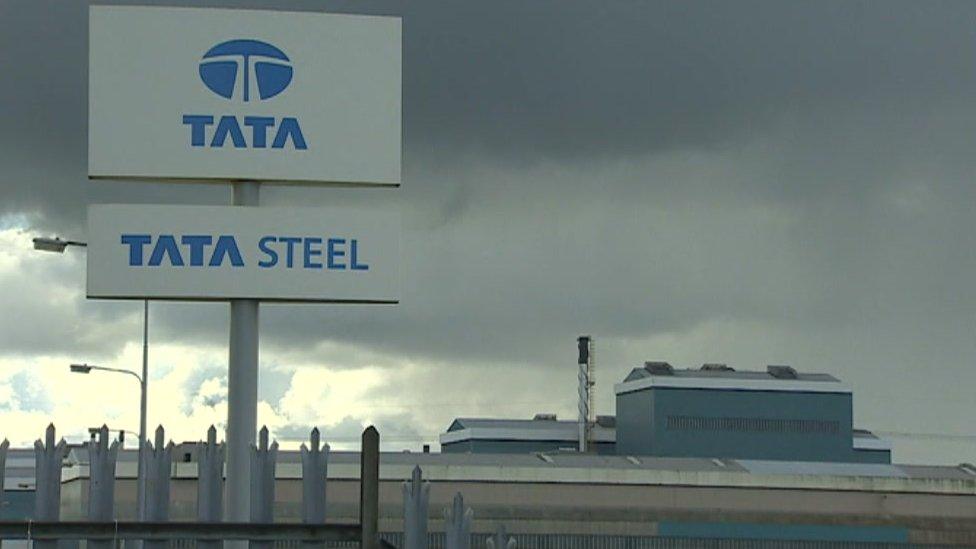'Steel sale needs months, not weeks', Jones tells Tata
- Published
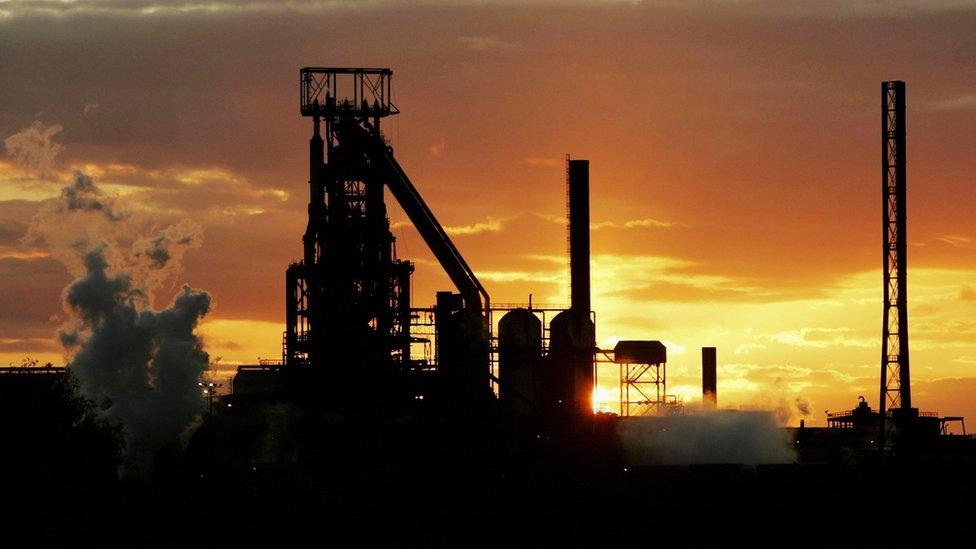
Carwyn Jones has told a senior Tata Steel executive months are needed for the sale of the firm, not weeks.
Indian owner Tata is selling its entire loss-making UK business, with more than 4,000 jobs at Port Talbot at risk.
The firm has not given an "open ended" commitment to keep plants open during the sale.
The first minister had a "frank and open discussion" with Koushik Chatterjee, a Welsh Government spokeswoman said.
She also said the Welsh Government understands Tata would prefer to sell its UK assets as an "entire integrated package".
But there are fears that the company would sell different units separately.
During Thursday's discussion, Mr Jones also asked for assurances that the assets be kept in a "saleable condition" to give the best chance of a buyer to come forward.
Tata has other Welsh plants at Trostre, Shotton, Llanwern and Newport, while UK plants in Rotherham and Corby are also affected.
Offer rejected
The steel industry across Europe has suffered from a excess of supply and falling steel prices with imports from China. Tata itself had lost £2bn in the UK over five years.
Some of those who live in Port Talbot have been talking about how the steel plant has affected their lives
Tata's Port Talbot plant is the biggest in the UK and is said to be losing £1m a day.
Sources said unions and management at Tata Steel had already come up with a turnaround plan for the 100-year-old plant.
Their original restructuring plan - made after Tata announced in January 1,050 jobs would go - was rejected on Tuesday when the firm chose to sell up at a board meeting in Mumbai.
Earlier on Thursday, Prime Minister David Cameron held an emergency meeting and said nationalisation was not the answer but the government was "not ruling anything out".
And on a visit to Lebanon, Foreign Secretary Philip Hammond said a "sustainable" solution was needed, but he added: "Just continuing to produce steel for which there is not adequate demand isn't the answer."
Plaid Cymru economy spokesman Rhun ap Iorwerth accused Mr Cameron of ruling out nationalisation for "ideological reasons", said his government was in "disarray" while the Labour Welsh Government had "no plan" either.
He suggested Welsh Government could take UK government cash for a turnaround plan and perform temporary-ownership itself "as a first step towards a worker-and-management buy-out, or until another sustainable offer emerges."
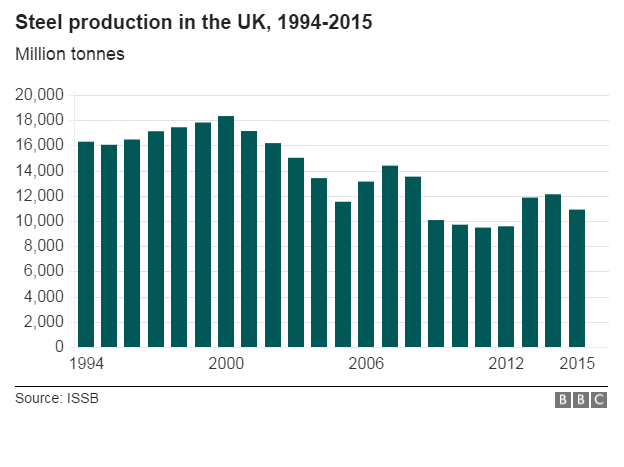
Welsh Conservative leader Andrew RT Davies said: "The immediate priority of governments at both ends of the M4 must be to work together to create a safe space for the steel industry, to calm this sense of turbulence.
"But jumping straight into demanding nationalisation won't help prospects of a sale, and we must be careful not to deter potential private sector buyers."
Earlier he had called for the UK government to be prepared to take a temporary stake in the business.
Kirsty Williams, Welsh Liberal Democrat leader, said she was disappointed with Mr Cameron's comments and added: "Without any form of part nationalisation, I fear we could be putting the Welsh steel industry under unnecessary strain at a time when everything must go smoothly."
Mark Reckless of UKIP Wales said: "I find it difficult to see how we'll have a sustainable future for the steel industry until we get energy prices down and proper tariffs on Chinese dumping. We can't do either of those in the EU."
But former Labour Welsh Secretary Lord Peter Hain said: "It is simply not accurate to say our steel industry would be better off outside Europe when the European Commission has a record 37 anti-dumping measures in place, with 16 of those are specifically targeting Chinese imports."
'Don't want charity'
Meanwhile Alan Coombs from the steelworker's Community union said he does not believe in nationalisation.
"I don't think it's the right way to go and we don't want charity," he said. "What we want is an even playing field."
But he said that temporary government ownership is a "completely different question to renationalisation".
"That's what we'd see as government support," he added.
The Assembly's enterprise and business committee is expected to meet on Tuesday to discuss the steel crisis and take evidence, a day after the recall of the whole assembly.
Tim Morris of Tata Steel and the Welsh Government's Economy Minister Edwina Hart, are expected to give evidence.

Analysis: BBC's Wales correspondent Hywel Griffith in Port Talbot
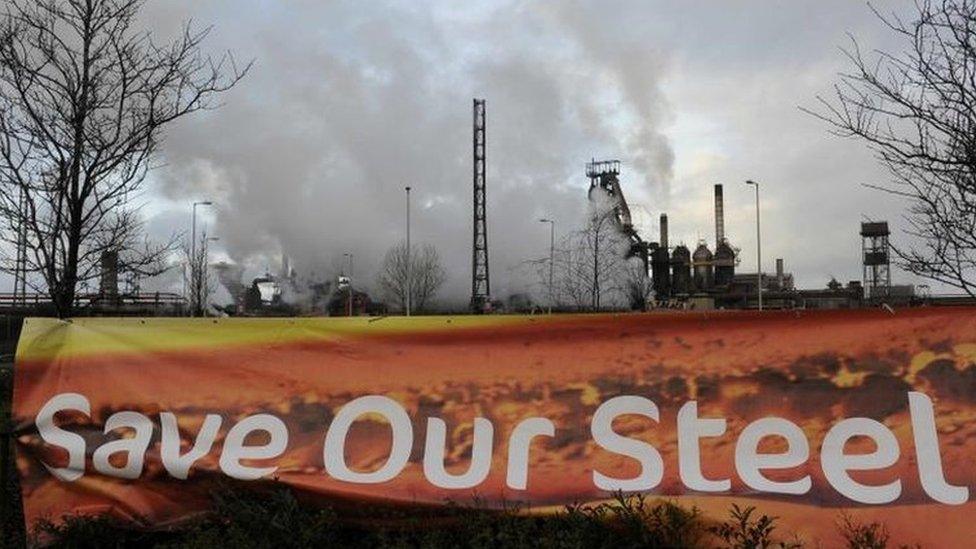
After days of uncertainty, there are still very few answers for the workers of Port Talbot. They want to know how long they have got.
They want to know if they can pay the mortgage, plan for the future and depend on a pension.
But at the moment, nobody can tell them.
There is anger here over how the UK government has handled the situation. While a delegation of local union reps were able to find a way to Mumbai to lobby Tata, there were no government ministers to be seen there.
Likewise, no UK minister has made their way to Port Talbot yet. Even if, as David Cameron says, there has been work behind the scenes for months, many workers here would like evidence of something more solid.
One worker told me he thinks the government has walked into this "with its eyes wide shut."
There have been clouds gathering over this plant for months - but yet when the storm hit there was no protection on offer.
There is still hope here a buyer can be found. In Port Talbot more than anywhere, they believe fervently in the product and prospect of demand for steel rising in years ahead.
But as the deadline to find a buyer seems to be in weeks rather than years, there is a grudging acceptance that time is against them.
- Published31 March 2016
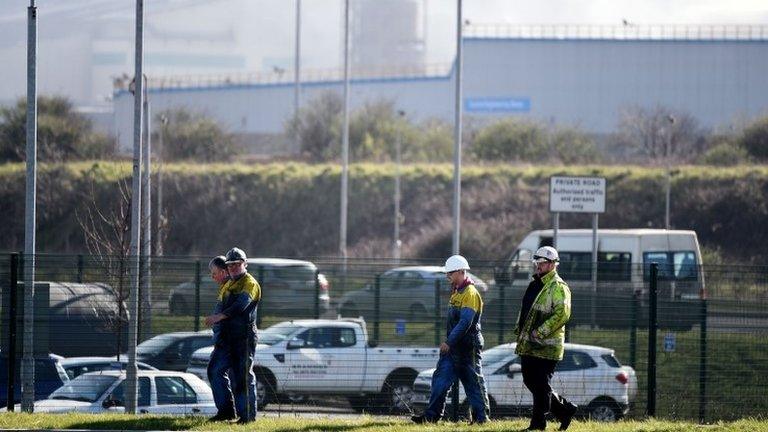
- Published31 March 2016

- Published31 March 2016
